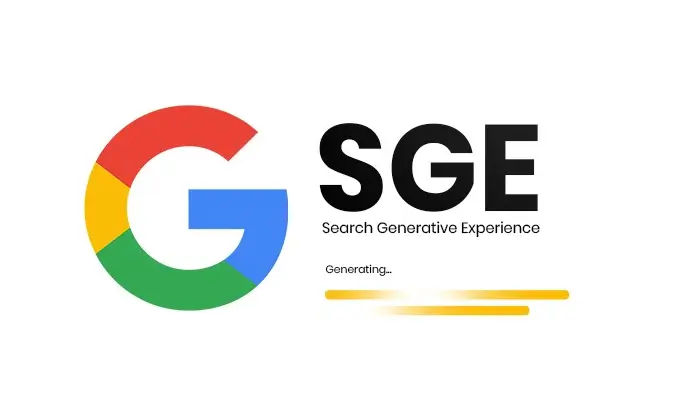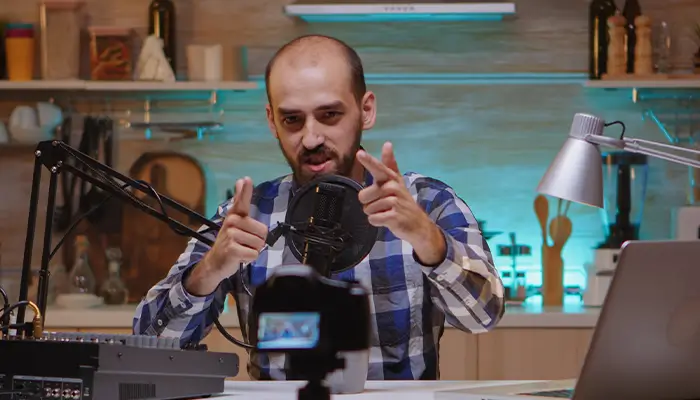
The Rise of Generative AI in Design: How It’s Reshaping Creative Workflows
October 1, 2025
How to Use AI for Client Presentations and Creative Pitches
October 6, 2025The SEO landscape has changed more in the last two years than in the previous decade. In 2025, Artificial Intelligence (AI) isn’t just influencing search, it’s redefining it. With Google’s Search Generative Experience (SGE), AI-powered algorithms and smarter ranking systems, the way websites are discovered, ranked and optimized has fundamentally evolved.
For designers, marketers and businesses, understanding how AI impacts SEO is no longer optional, it’s essential to staying visible online.
-
The Rise of Google’s Search Generative Experience (SGE)
Google’s Search Generative Experience, officially rolled out globally in 2024, uses AI to generate direct, conversational answers to search queries. Instead of users scrolling through multiple results, SGE delivers AI-generated summaries right on top of the results page.
This means:
- Featured snippets are now AI summaries.
- Websites cited in SGE answers receive more authority and visibility.
- Traditional keyword rankings matter less, context and intent matter more.
SEO Tip: Optimize for question-based queries (“How to,” “Best way to,” “Why does…”) and provide context-rich content that AI can easily reference.

-
Smarter Algorithms and Semantic Search
In 2025, Google’s algorithms use natural language processing (NLP) to understand search intent, meaning SEO is now less about exact keywords and more about topic depth and relevance.
AI-driven updates prioritize:
- User intent over keyword density.
- Semantic connections between topics.
- Expertise, Experience, Authoritativeness and Trustworthiness (E-E-A-T) in content.
SEO Tip: Use related key phrases and write naturally, don’t over-optimize. A blog titled “How to Improve Website Speed in WordPress” should also discuss caching, image optimization and server performance to show depth.
-
AI Tools for Smarter SEO Strategy
Marketers are leveraging AI not just for writing but for data-driven SEO decisions. Tools like:
- SurferSEO – Suggests keyword clusters and optimizes content layout.
- Clearscope – Uses AI to recommend semantic terms based on top-ranking pages.
- MarketMuse – Automates content planning and identifies keyword gaps.
These tools combine search data with AI modelling to help marketers predict ranking opportunities and create higher-value content.
-
Voice and Visual Search Optimization
With voice assistants and image-based queries now mainstream, optimizing for multimodal search is crucial.
- Voice SEO: Focus on conversational, long-tail keywords like “What’s the best design plugin for WordPress?”
- Visual SEO: Use alt text, descriptive filenames and structured data so Google Lens and Pinterest can index images correctly.
Fact: According to Google, more than 30% of mobile searches in 2025 are now voice-activated or image-based.
-
AI-Powered Content Creation, and Its Limits
While AI can help create blogs, metadata and FAQs faster, search engines now differentiate between human insight and automated content. Google rewards content that includes personal expertise original research and credible references.
Pro Tip: Combine AI-generated structure with human storytelling, let AI handle outlines, but inject your own experience, data and voice to stand out.
-
Predictive SEO and Personalization
AI doesn’t just react to searches, it predicts them. Using user behaviour, location and browsing history, Google tailors search results uniquely for each user.
For marketers, this means optimizing not just for one keyword but for dynamic audience segments. Tools like Ahrefs AI and SEMrush Insights 2025 now use predictive modelling to forecast traffic trends.
Conclusion
In 2025, SEO has evolved from keyword stuffing to AI-driven storytelling. The winners of tomorrow’s search results will be those who combine authentic content with AI intelligence, focusing on intent, quality and value.
The takeaway?
AI hasn’t killed SEO; it’s made it smarter. The future belongs to those who use AI tools to understand their audience better, not manipulate algorithms.
If you have any questions regarding “AI Meets SEO” feel free to contact us. For inquiries and consultations, call us at: +92 321 4808303 or Email us at: hello@owaisgilani.com.
Disclaimer: The information shared on this website is for educational and informational purposes only and reflects my personal views and experiences. While I strive to provide accurate and helpful content, readers should use their own judgment and consult with a qualified professional before making any decisions based on the information here. I am not responsible for any actions taken based on this content. Feel free to reach out to me if you need clarification or have questions before using any part of this information.



